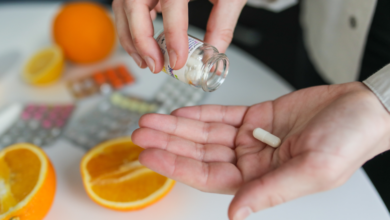How Soon Can You Drink Coffee After Taking Omeprazole?

Coffee and omeprazole are two commonly consumed items, but many people wonder how soon can you drink coffee after taking omeprazole. In this blog post, we will discuss the recommended time to wait after taking omeprazole before drinking coffee and precautions to take to avoid potential issues.
What is Omeprazole?
Omeprazole is a proton pump inhibitor(PPI), a type of medication used to reduce the amount of acid produced in the stomach. It is often used to treat conditions such as acid reflux and gastroesophageal reflux disease (GERD). Omeprazole can also be used to treat other conditions such as gastritis, peptic ulcers, and Zollinger-Ellison syndrome, a rare condition where the stomach produces too much acid.
How soon can you drink coffee after taking omeprazole?
When it comes to drinking coffee after taking omeprazole, there is no set time frame that one must wait. However, it is generally recommended to wait at least 30 minutes to an hour after taking omeprazole before drinking coffee. This is because coffee can increase the production of stomach acid, which may counteract the effects of omeprazole.
Additionally, drinking coffee on an empty stomach can cause irritation and may worsen symptoms of acid reflux. Therefore, it’s best to have a meal before or after drinking coffee, to avoid any potential issues.
Are there any interactions between omeprazole and coffee?
It is also important to note that omeprazole can interact with certain substances found in coffee, such as caffeine. Therefore, if you are taking omeprazole, it is always a good idea to speak with your healthcare provider about any potential interactions or concerns before drinking coffee or any other beverage.
The Bottom Line
So, How Soon Can You Drink Coffee After Taking Omeprazole?
In summary, it is generally recommended to wait at least 30 minutes to an hour after taking omeprazole before drinking coffee and also to have a meal before or after drinking coffee. However, it’s best to consult with your healthcare provider for any concerns or interactions.









